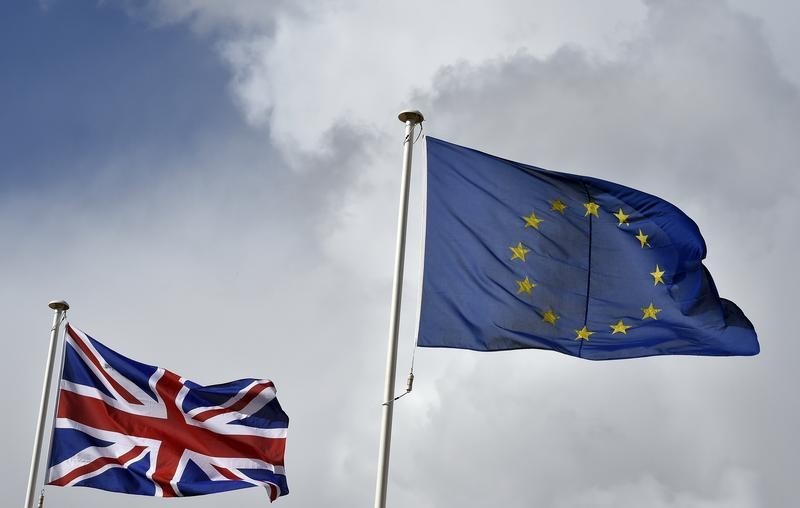LONDON (Reuters) - A majority of Britons who have made up their minds would vote to leave the European Union, making Britain by far the most Eurosceptic country in the 28-member bloc, according to an ORB opinion poll published on Thursday.
As Prime Minister David Cameron pushes for a deal from other EU leaders before a referendum which he could call as early as June this year, the opinion poll showed that opposition to the European Union was growing in Britain.
While 21 percent of voters were still undecided, the poll showed 43 percent of British voters wanted to leave the EU while 36 percent wanted to stay.
When the undecided voters are stripped out, 54 percent of British voters want a British exit, or 'Brexit', up from 51 percent a year earlier, and 46 percent to stay, down from 49 percent a year earlier.
"Despite the impending vote on Brexit, significantly more people report to have felt further removed from Europe over the last twelve months than closer to it," Johnny Heald, managing director of ORB International, told Reuters.
"If the Prime Minister is to avoid disaster on his watch someone needs to start convincing the public very soon on why we should remain a part of the EU."
The poll indicates that the referendum could be closer than some politicians had assumed and that the result will depend on a fifth of voters who are still undecided.
A British exit would shake the Union to its core, ripping away its second largest economy and one of its top two military powers.
Pro-Europeans warn an exit from the EU would hurt Britain's economy and could trigger the break-up of the United Kingdom by prompting another Scottish independence vote. Opponents of EU membership say Britain would prosper outside the bloc.
While support for leaving was highest in Britain, support for staying in the EU was highest in Romania (85 percent) Germany (72 percent), Finland (71 percent) and Spain (68 percent)
Across the 14 countries polled, 64 percent wanted to stay, unchanged from a year ago, though within countries such as Italy - where 42 percent now want to leave compared with 25 percent one year ago - there was an increase in opposition to membership.
In Greece, 44 percent said they would prefer to have their own currency, down from 55 percent a year earlier, while 43 percent said they wanted the euro, up from 33 percent a year earlier.
The poll showed 12 percent of Greeks didn't mind either way about the euro or the drachma.

The poll surveyed 15,500 adults across Europe.